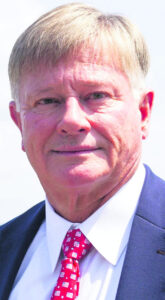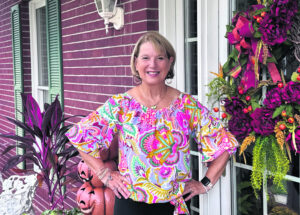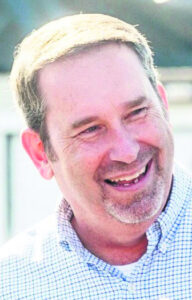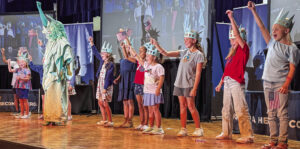Dream on
By By Craig Ziema / guest columnist
Jan. 19, 2003
Craig Ziemba is a pilot who lives in Meridian. He can be heard this Monday on WMOX-AM 1010 from 7 a.m.-9 a.m.
Once every generation or so, a nation is blessed with a powerful voice that awakens its conscience to a moral cause. With the simple expression of truth, souls are stirred, minds are changed and justice shines brightly for all to see.
Rarely does a message reach the head and the heart, but when it does, the world is never quite the same.
I was born the year Martin Luther King was killed, but I grew up in a world that had been dramatically changed by his dream. His voice still echoes through the corridors of time with an ageless message of equality, brotherhood, faith and hope.
Dreams are powerful things. On the steps of the Lincoln Memorial, King challenged Americans to make good on their promise of freedom for the Negro by breaking the chains of segregation and discrimination that had made him an exile in his own land.
It worked. My generation never knew segregation. We were ashamed of the remnants of bigotry we witnessed in our elders and vowed to be different.
Opportunity
America is better, and worse, than it once was. Opportunity is now the birthright of every American. Many grandsons of former slaves and grandsons of former slave owners do sit at the table of brotherhood, fight shoulder to shoulder in our nation's wars and live side by side in harmony.
And yet some still refuse to take the hand of their brother who was made in God's image. A few underachieving whites cling to the myth of racial superiority in an attempt to feel better about themselves while some blacks insist America is racist as an excuse for doing nothing with their lives.
The civil rights march from Selma to Montgomery in 1965 focused the nation's attention on the plight of blacks in the South and led to the Voting Rights Act, which removed impediments to black voter registration. Selma should be a proud city, but it's become instead an object lesson of poverty, neglect and despair.
Martin Luther King said, "We cannot be satisfied as long as the Negro's basic mobility is from a smaller ghetto to a larger one." Blacks are now free to live wherever they choose, yet many refuse to leave the drug-infested wasteland of public housing.
What's the answer?
Segregation is over, but millions now live in a self-imposed apartheid of resentment, addiction and dependence.
What's the answer? Listen and you can hear a powerful voice say again, "In spite of the difficulties and frustrations of the moment, I still have a dream. It is a dream deeply rooted in the American dream."
Martin Luther King's dream is not an African dream or a European dream. It's an American dream. He didn't wish to return to the tribal anarchy of Africa or the aristocratic monarchies of Europe, he longed for the principles of freedom found in the Declaration of Independence.
Martin Luther King also knew that his dream could only become reality through faith in the God of the Bible. Faith would bring about the day "when all of God's children will be able to sing with a new meaning, My country, 'tis of thee, sweet land of liberty, of thee I sing. Land where my fathers died, land of the pilgrim's pride, from every mountainside, let freedom ring.'"
This Martin Luther King day, remember the dream that changed the heart of a nation, pray for the day when all God's people walk together as sisters and brothers and dream on.










